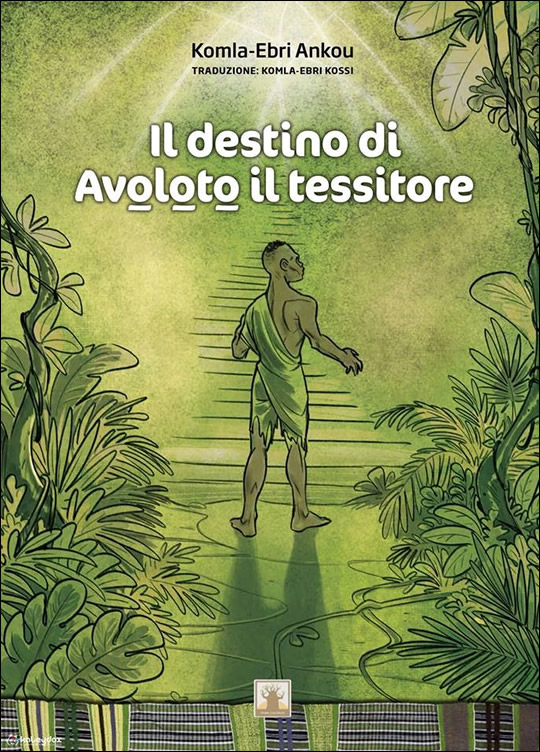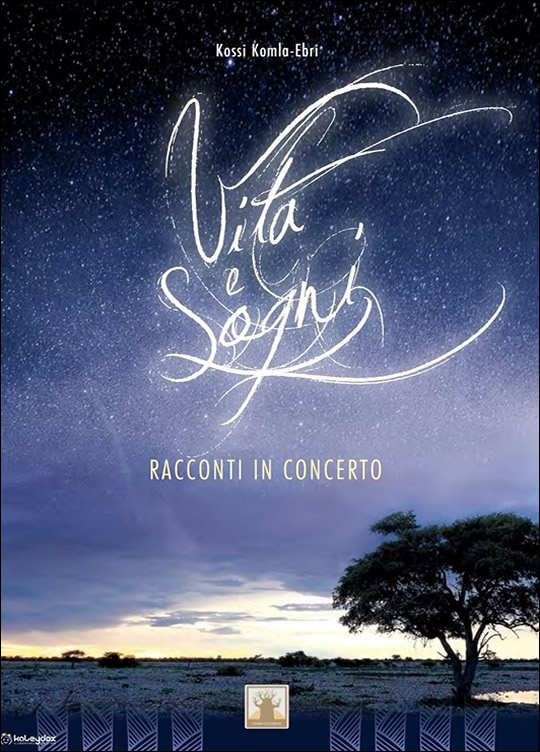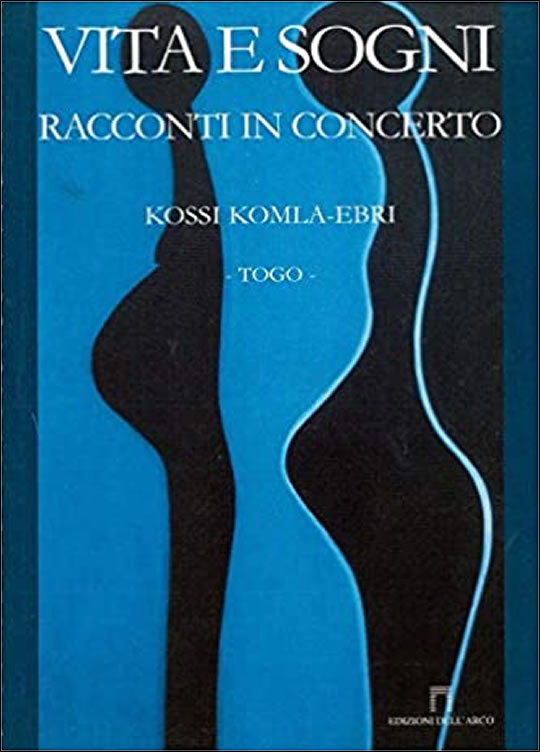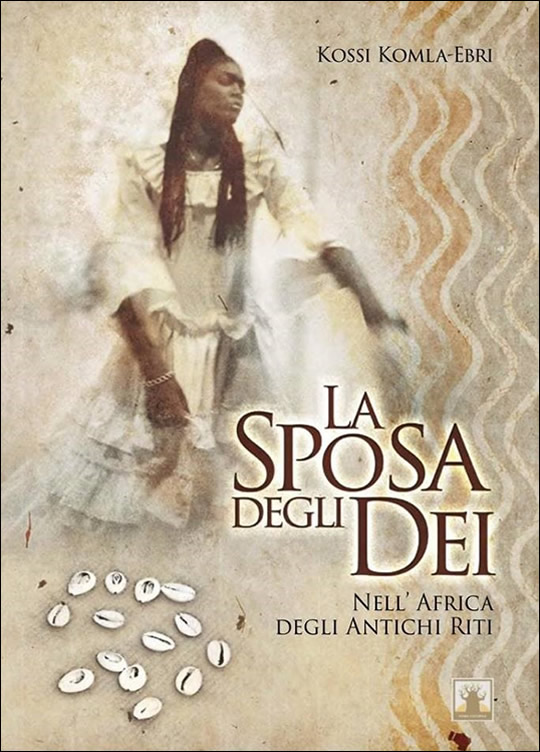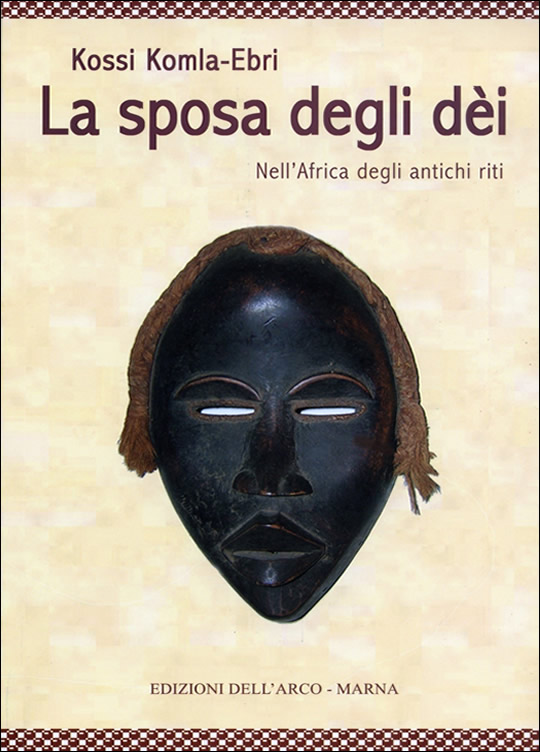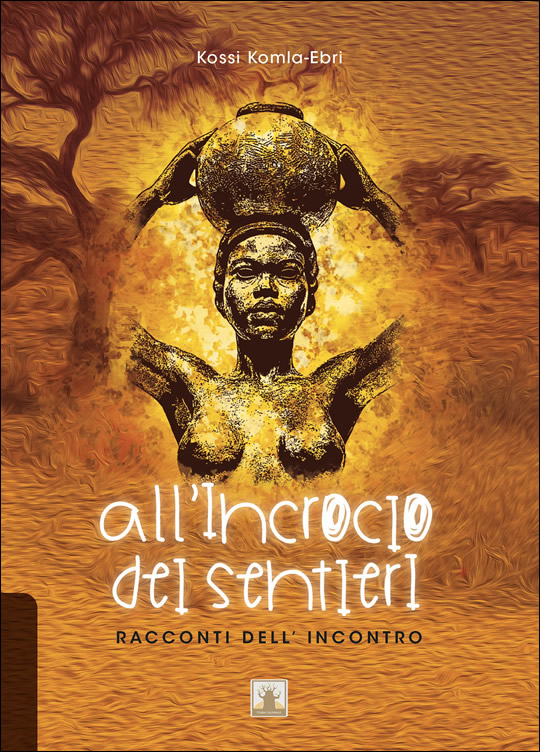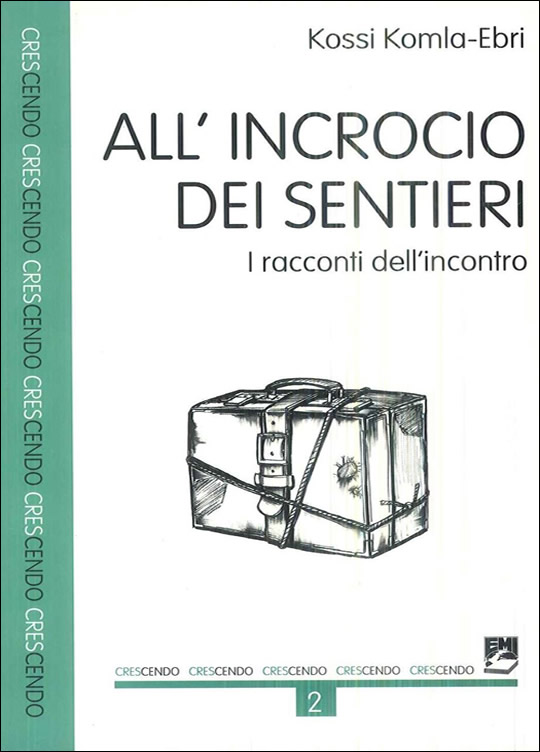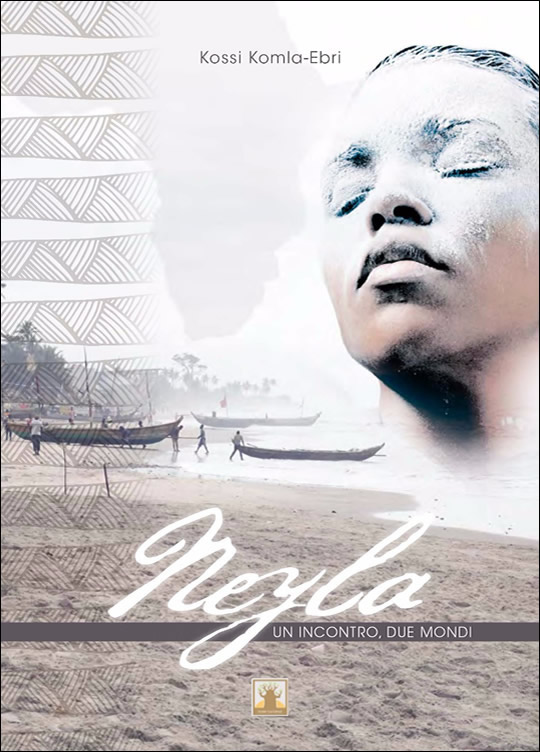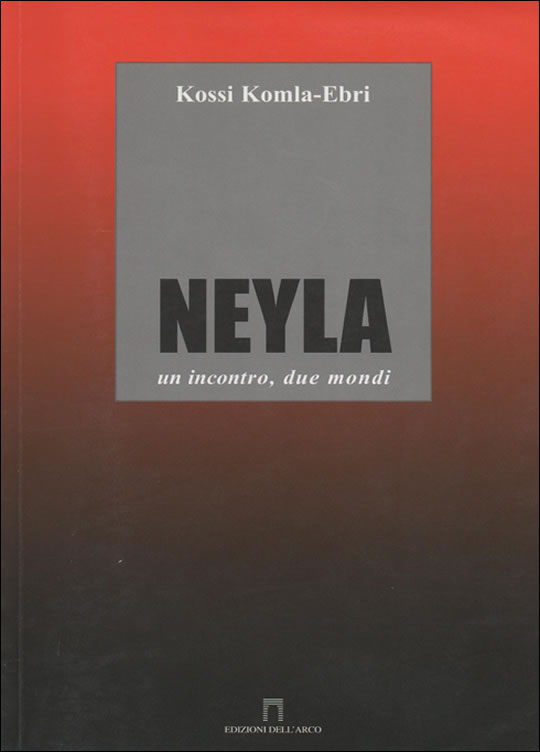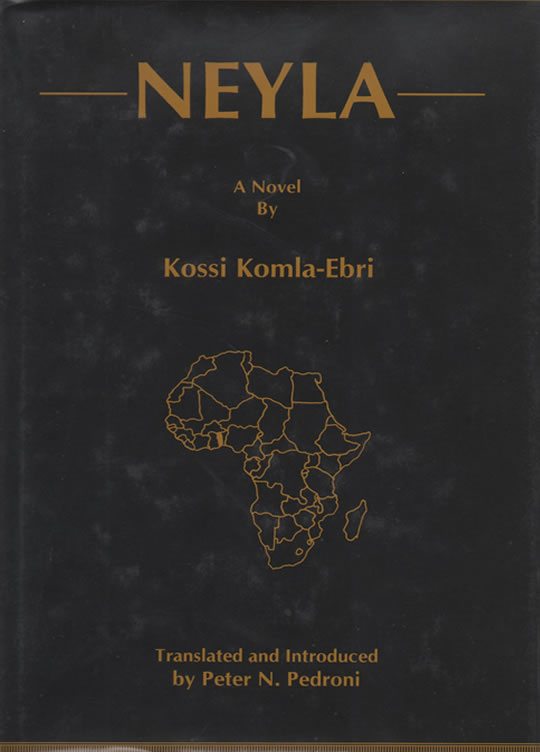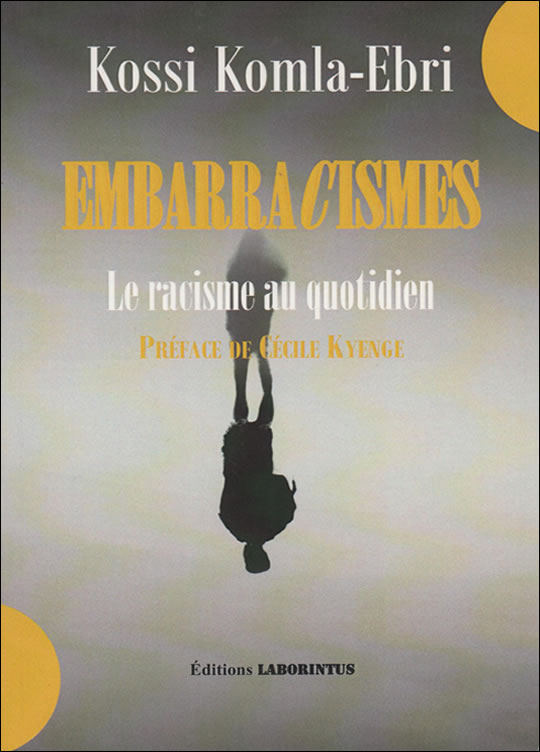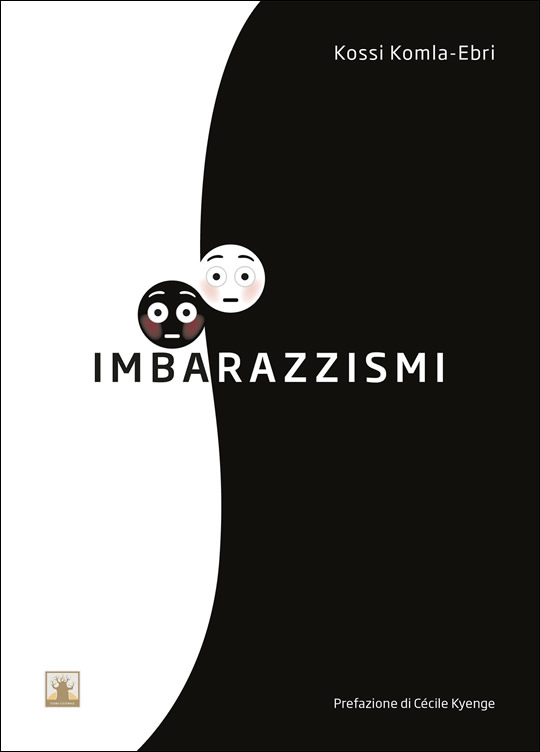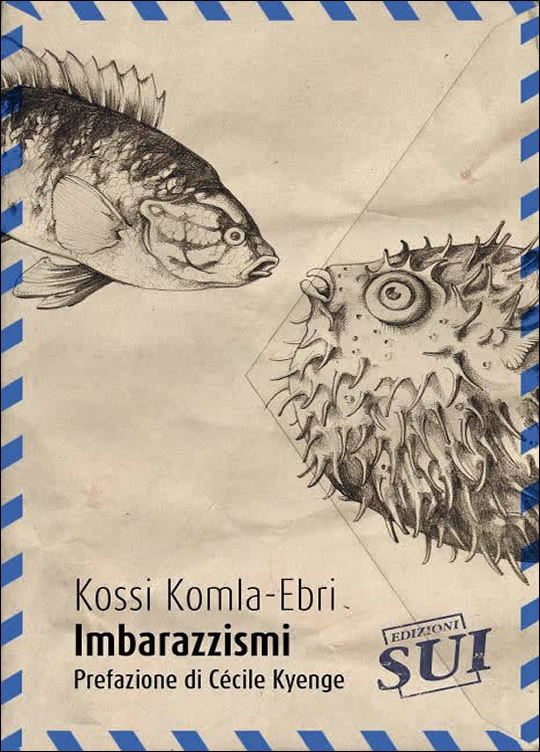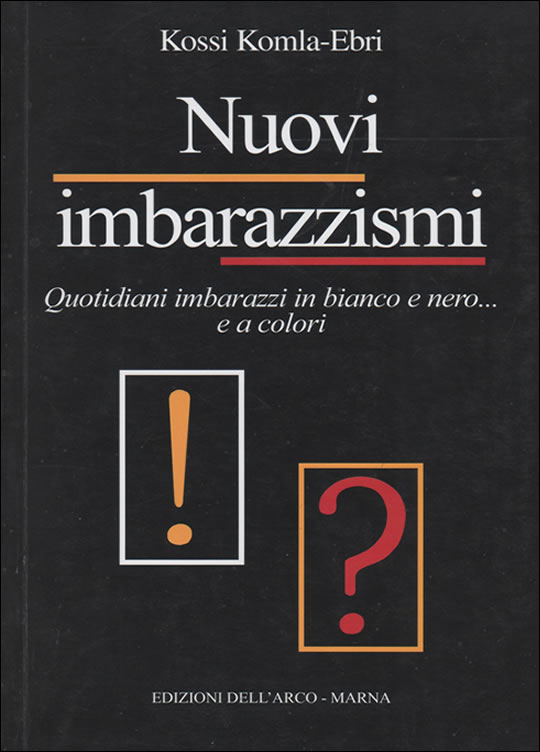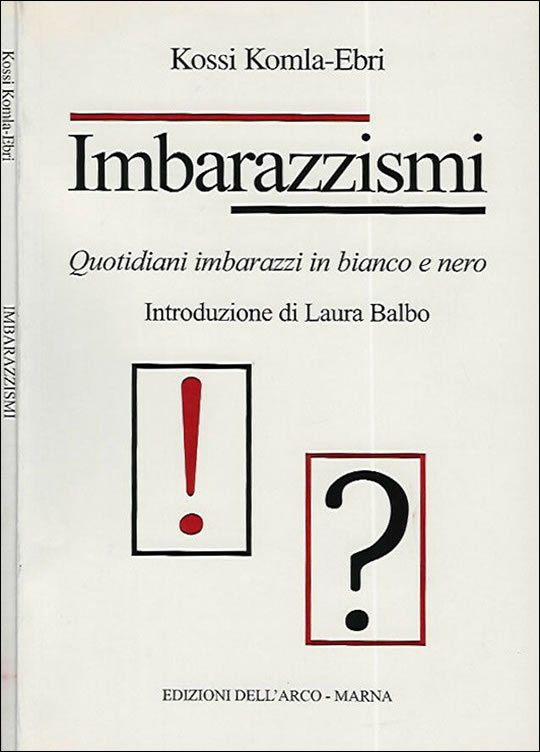Neyla
Neyla
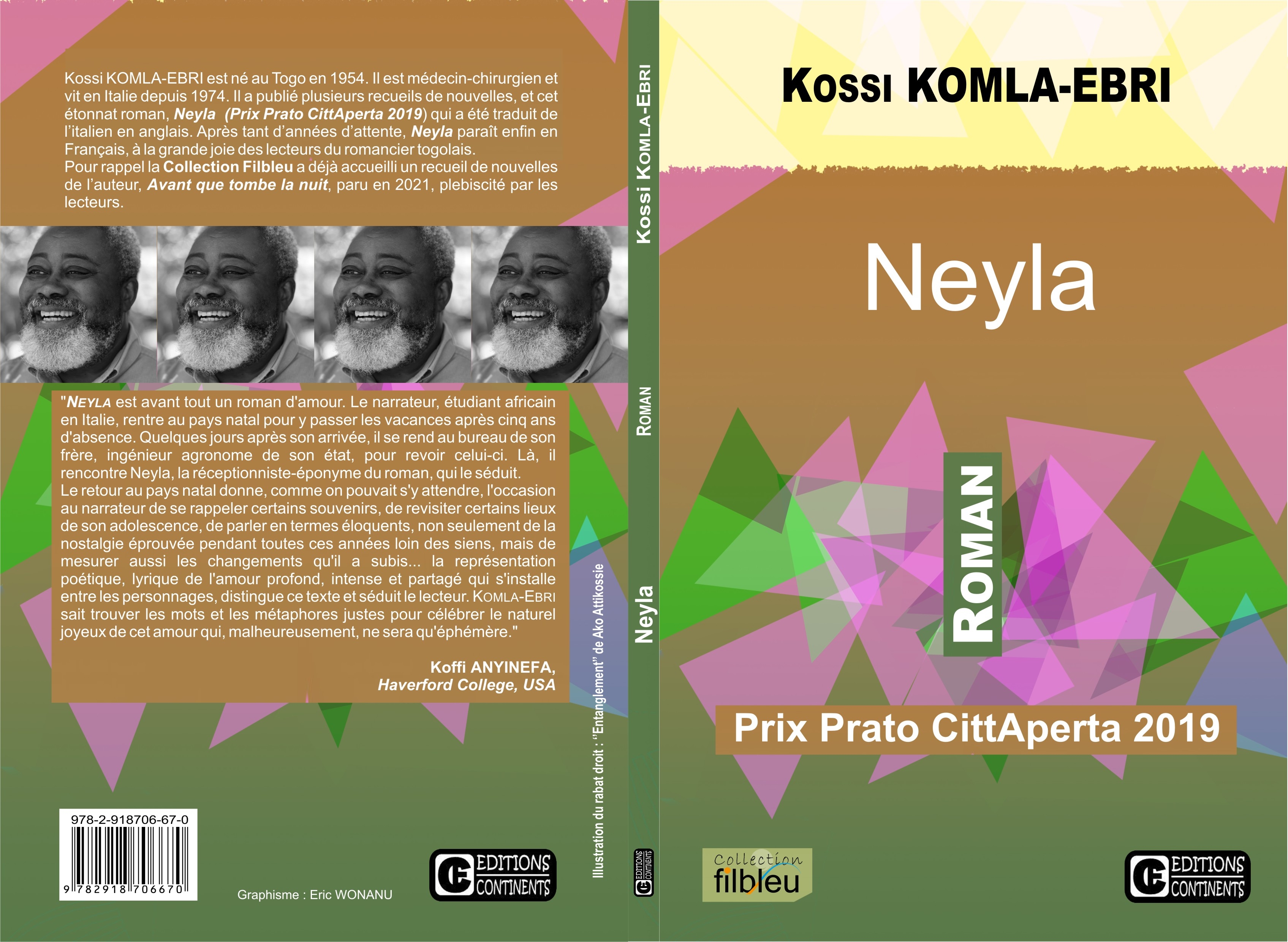
Kossi KOMLA-EBRI
Roman
Prix Prato CittAperta 2019
Neyla
Koffi Anyinefa
Haverford College USA
HOME - A story collection by Kossi Komla- Ebri Translated by Marie Orton
A story collection by Kossi Komla- Ebri Translated by Marie Orton
HOME
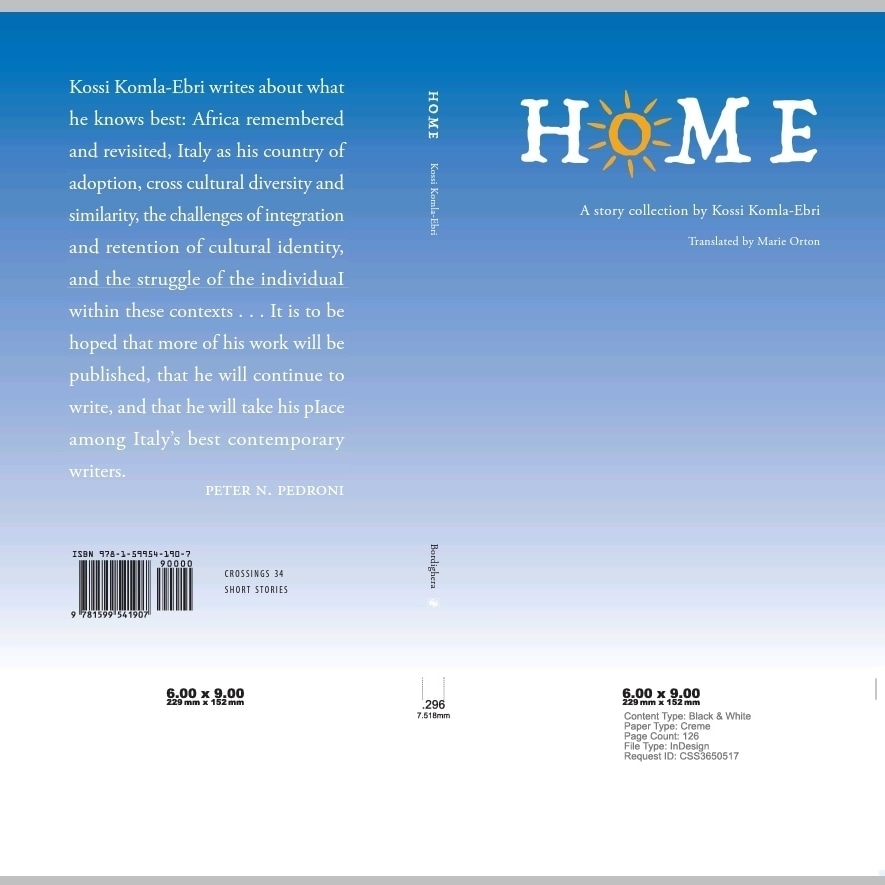
HOME
HOME A story collection by Kossi Komla- Ebri Translated by Marie Orton
Excerpt “When I’ll cross the river”
It is true that “a man never returns to his mother’s womb, but he gladly returns to his native village.”
I remember when I was a young student in Europe returning home one summer to my village Hanyigba in Togo, that village of ours gripping the mountains.
***
Before saying good-night with his usual, “I’m going to bed, may God wake us up” that night my father said:
“Tomorrow morning we must wake up early; we have a judgment in the Ablomé neighborhood.”;
Seeing my questioning look, he continued: “Yes, I know you are not yet old enough to sit with us, but the elders have decided that your level of study, and the fact that you have traveled, gives you the right to sit under the tree of palabre. 1 Go rest; tomorrow you will be with us in Ablomé.”
***
I spent the night brooding over a thousand thoughts: how I should behave, if I’d have the patience to deal with the numerous codified rituals of the palabre, especially since I by now I had become accustomed to summarizing when I spoke, getting straight to the heart of the matter.
***
We arrived in Ablomé in the courtyard of old Nukuku. “Nukuku” in my language means “dead thing,” and in Europe one would immediately react, “What an ugly name!” but actually It’s a name for good luck, because her parents had lost all their children in infancy that were born before her. When she was born, her mother named her “Nukuku” to keep her alive because by calling her “Dead Thing”, her mother was sure that death would not take the baby away. What would Death do with a dead thing? Indeed, Death spared Dead Thing until she became a grumpy old woman with a face furrowed by the snares of life.
Strength and power of the Word, the power of the Name. The Word can therefore defeat death....
The courtyard of the elderly Nukuku’s was already crowded with people and a chorus of “Welcome, you who have walked!” greeted us as we crossed the threshold. We sat under the thatched roof in the courtyard with the elders and notables of the village in a semicircle facing Nukuku’s house.
***
(…) the dignitary Yawovi took up the word again, addressing the elder Wadefe:
“I beg Papa Wadefe to hear with his mind and heart these words of mine, and to convey them to our leader in such a way that they may reach the hearts and minds of all present here. Everyone present here knows that we are together in the elderly Nukuku’s courtyard. My cousin Nukuku, as you all know, is seriously ill and has been bedridden for a fortnight in one of the huts here in front of us: her hours are now numbered and she is preparing to take the path that leads to the great river...” (It is a belief among us that life and death are on opposite sides of the same river, and to die is nothing more than to cross the river).
“Yesterday” resumed Yawovi, “her daughter Abra, who has been living in the city for years now, came seeking our help. Years ago, after a furious argument with her mother, before Abra left home forever, her mother told her these exact words: “Do what you will, my daughter, but as sure as my name is Nukuku, when I cross the river.... you will cross the river with me.”
At such grave words, a chill shook the whole assembly into an icy silence. Then Yawovi continued explaining that, with his mother now on the path to the river, Abra had begun to feel sick in the city, to feel a burning inside her every day, sometimes in her belly, then in her legs, then in her hips. All over her body, she felt like ants were running under her skin or an electric current was running under her hair. The white doctors in town didn’t understand and gave her drops that only made her sleep.
Finally, Abra, exhausted, had gone to consult a soothsayer who had told her while looking at the shells, “Sometimes it is difficult to separate the fingernail from the finger, the pestle from the mortar... go back to your village and you will understand...”
Abra returned to find her mother in agony, to remember her mother’s dreadful statement, “When I cross the river.... you will cross the river with me” to understand the strength and power of the Word. The Word that can defeat death.
Can the Word that defeats death also bring death?
1 “Palabre” means “discussion.”
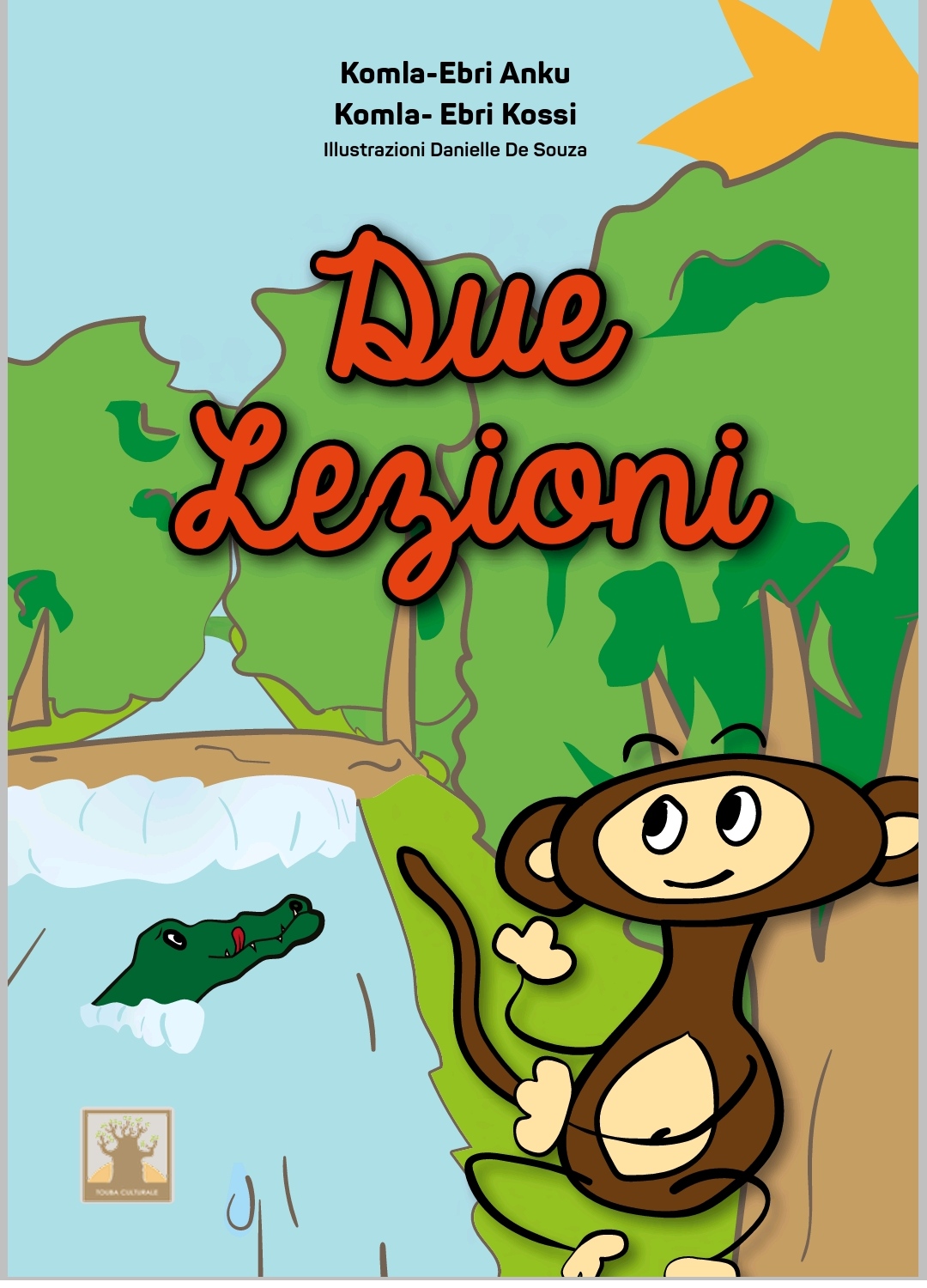
Imbarazzismi. Esercizi di razzismo quotidiano (libro bi-fronte italiano-arabo),
Due lezioni (Komla-Ebri Anku / Komla- Ebri Kossi) Illustrazioni: Danielle De Souza Impaginazione Grafica: Alessandra Carcano
Due lezioni
(Komla-Ebri Anku / Komla- Ebri Kossi)
“Gente, udite la mia favola!”
“Ben venga la tua favola.”
La mia favola, parte sul filo del tempo, corre, corre e…cade su Késsé- la – scimmia e Alen- il- montone:
Quelli erano i tempi in cui gli animali andavano d’amore e d’accordo e non si facevano la guerra: tutti vivevano in pace. Ogni tanto vi era qualche scaramuccia: succedeva così al leone di stuzzicare un po’ troppo una gazzella o un’antilope tanto da lasciarle delle unghiate, ma non era niente di grave, era solo per scherzare, per passatempo…A volte lo sparviero condiscendeva a scendere dalle sue alture e piombava addosso a qualche uccellino, ma niente d’allarmante; era solo un gioco. La mangusta pettegolava con i sibilanti serpenti e il tapiro si concedeva il piacere di trasportare le formiche sulla sua lingua. Certo accadeva che, per distrazione, egli chiudesse la bocca su di loro, ma in fondo era solo uno spiacevole incidente senza grande importanza.
Insomma a quei tempi gli animali vivevano in pace e s’intendevano a meraviglia.
Un giorno Késsé- la- scimmia venne a trovare Alen -il- montone:
“Alen amico mio” – annunciò- “vorrei andare a rendere visita ad alcuni parenti dall’altra parte del fiume, ma come sai, il cammino è più breve quando si viaggia in compagnia. Mi piacerebbe che tu mi accompagnassi, saremo di ritorno fra due giorni.”
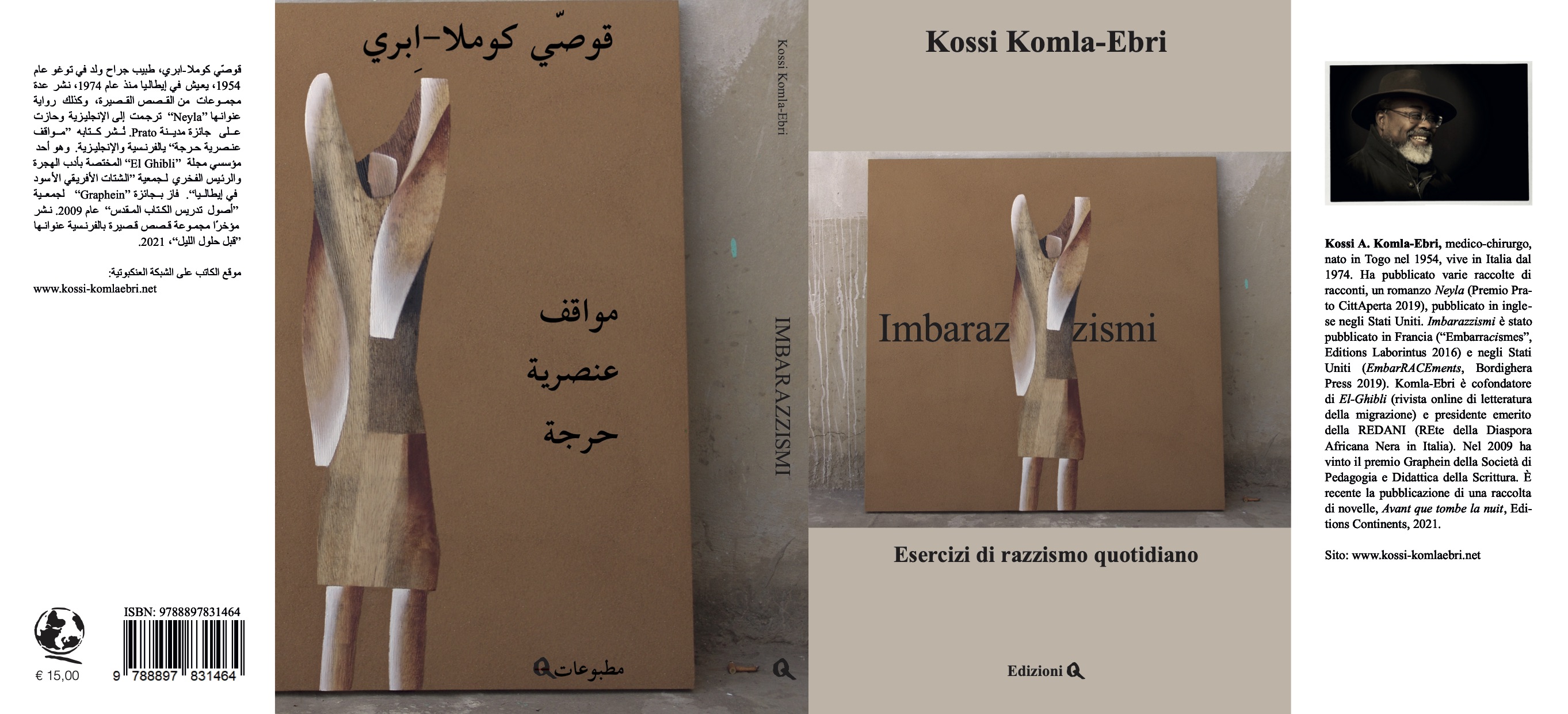
Imbarazzismi. Esercizi di razzismo quotidiano (libro bi-fronte italiano-arabo),
Imbarazzismi. Esercizi di razzismo quotidiano مواقف عنصریة حرجة (libro bi-fronte italiano-arabo)
Imbarazzismi. Esercizi di razzismo quotidiano
مواقف
عنصریة
حرجة
(libro bi-fronte italiano-arabo)
كوملا-اِبري
مواقف
عنصریة
حرجة
مطبوعات Q
قوصّي كوملا-اِبري
سیسیل كیینجھ
وزیرة الاندماج الاجتماعي سابقاً*
مقدمة
كل أسود يعيش في إيطاليا لديه ذخيرة غنية من "الحرج العنصري". فهذه التسمية الجديدة الموفّقة، التي ابتكرها كوصّي كوملا-إيبري، تشير إلى مواقف لا تدخل في حيّز حالات التمييز الفظّة، العنيفة أو على الأقل المتعمّدة، لكن الأمر يتعلق بحوادث عنصرية من العيار الخفيف دون أن يدرك مسبّبها المعنى الضيّق للكلمة.
"الحرج العنصري"، كَزَلّة لسان غير مؤاتية، يثير الإنزعاج. وأسوة بالهفوة الفرويدية[1]، فإنها تكشف الأحكام والأحكام المسبقة المُسْتأصَلة.
ولكن على الرغم من أن كل حادثة من هذه الحوادث ليست ذات شأن، فإن "الحرج العنصري" يلحق الأذى بمشاعر ضحاياه، لأنه يتكرر يومياً ويكشف عن ذهنية شائعة آهلة بالقوالب النمطية.
كيف يمكن التغلب على الأحكام المسبقة؟ الخطوة الأولى في التغلب على الأحكام المسبقة هي معرفة كيفية استشفافها. يجب أن نعترف بأن كل واحد منا لديه أحكام مسبقة عديدة، لذلك يجب أن نتعلم أن نراها ثم نكون على استعداد لإعادة النظر بها، وتوسيع معرفتنا ومقارنتها مع واقع الحقائق.
هذه المجموعة من الحكايات المضحكة، اللاذعة والمبهرة، تساعدنا على كشف النقاب عن المركزية الإثنية والنمطية عن طريق السخرية، وهي سلاح لطيف ولكنه فعال ضد العنصرية الدفينة.
يذكّرنا كتاب الطبيب والكاتب الإيطالي-التوغولي بأنه لا يزال يتعين علينا قطع مسافة أخرى من الطريق لبناء مجتمع ومواطنة شاملة حقاً تجاه الأقليات والأشخاص من أصول مختلفة، ولكن ينبغي علينا أيضاً أن نلاحظ أن العقلية تتغيّر، وأنها قد تغيّرت بالفعل جزئياً.
يشهد المجتمع الإيطالي تحولاً سريعاً: من بين أبطال القصص القصيرة التي جمعها كوصّي كوملا- إيبري – بالإضافة إلى الأشخاص الذين ما زالوا في حيرة من أمر إيطاليا المهجّنة أكثر فأكثر- ثمة العديد من الأزواج المختلطين، والأسر بالتبني، ومجموعات الأصدقاء المكونة من أشخاص ينتمون لجنسيات مختلفة.
باختصار، هناك بلد يكون لون الجلد، أسوة بلون الشعر، في علاقات المودة والعلاقات الاجتماعية، مسألة ميلانين فحسب. بلد حيث الاختلافات بين كل عضو هي قوى كامنة يجب أن نعمل منها كنزاً.
سيسيل كيينجه[2]
وزيرة الاندماج الاجتماعي
[1] يمكن تعريف الهفوة الفرويدية على أنها نوع من الأخطاء غير الطوعية الناجمة عن صراع نفسي موجود في الفرد. هذه الأخطاء وأوجه القصور، التي يعتبرها معظم الناس مرادفة لقلّة الاهتمام، تأخذ مغزى مختلفًا تمامًا وفقًا للتحليل النفسي الذي يعتبرها أي شيء سوى العشوائية، ولكنها تُعزى، بدلاً من ذلك، إلى وجود تباينات داخلية للفرد بين إرادته الواعية و ميوله اللاواعية.
[2] كاشيتو كيينجه، المعروفة باسم سيسيل (من مواليد كامبوفه، 28 أغسطس 1964)، هي سياسية إيطالية من جمهورية الكونغو الديمقراطية. شغلت منصب وزيرة الاندماج الاجتماعي من 28 أبريل 2013 إلى 22 فبراير 2014 في حكومة إنريكو ليتّا، أول وزيرة "سوداء" (كما تفضل أن تعرّف نفسها، بدلاً من وزيرة "ملونة") في حكومة إيطالية.
بسبب قناعاتها السياسية بشأن الهجرة، قوبل تعيينها في منصب وزيرة معارضة شديدة من قبل مختلف أعضاء حزب رابطة الشمال اليميني المتطرف. وكان الأصل الكونغولي هو نقطة ارتكاز الهجمات التي شنها عليها عضوا البرلمان إرمينيو بوسو وماريو بورغيزيو من الحزب المذكور. وسجلت الصحافة في الأيام التالية العديد من الهجمات العنصرية الأخرى من رابطة الشمال والجماعات السياسية الأخرى، وردّت الوزيرة إنها ستتبع مبدأ اللاعنف ولن ترد على الاستفزازات.
في 13 يوليو 2013، وجه نائب رئيس مجلس الشيوخ روبرتو كالديرولي، خلال مظاهرة لرابطة الشمال، بعض الإهانات من المنصة ضد الوزيرة، واصفا إياها بـ "أورانغ أوتان أو إنسان الغاب". أدانت معظم الشخصيات السياسية الإيطالية هذه الحادثة، من رئيس الجمهورية إلى رئيس الوزراء، ومن رئيسي مجلس الشيوخ ومجلس النواب، ومن الأمم المتحدة والفاتيكان. كما حظيت هذه الحادثة بتغطية إعلامية كبيرة في الصحافة الأجنبية.
Neyla (v slovenščini)
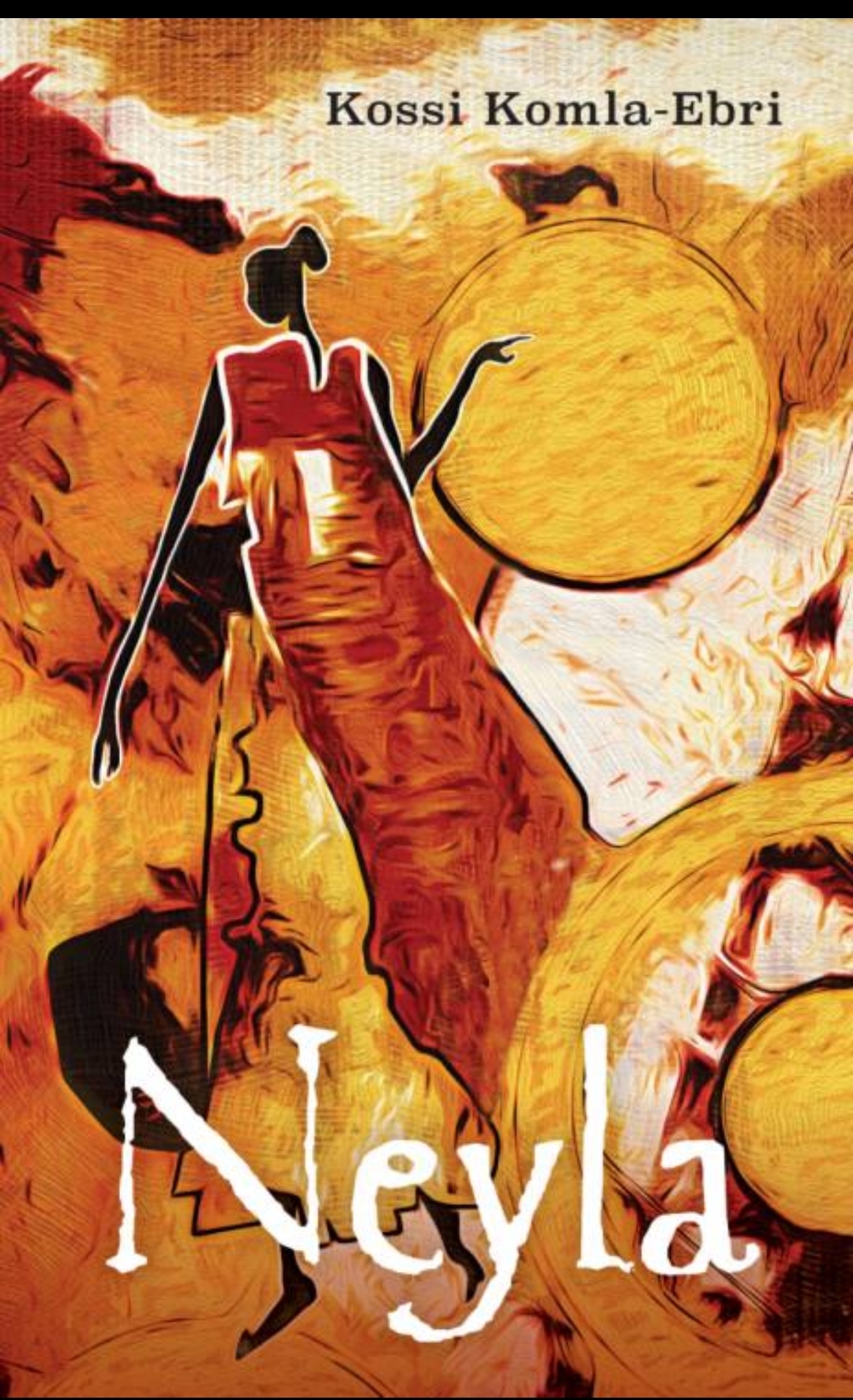
Neyla
Prevod: Ingrid Vidmar
Spremna beseda: Žiga Valetič
Kossi Komla-Ebri je afriško-italijanski pisatelj. V Italiji je od leta 1974, kjer je leta 1982 diplomiral iz medicine in kirurgije. Živi in dela v pokrajini Como.
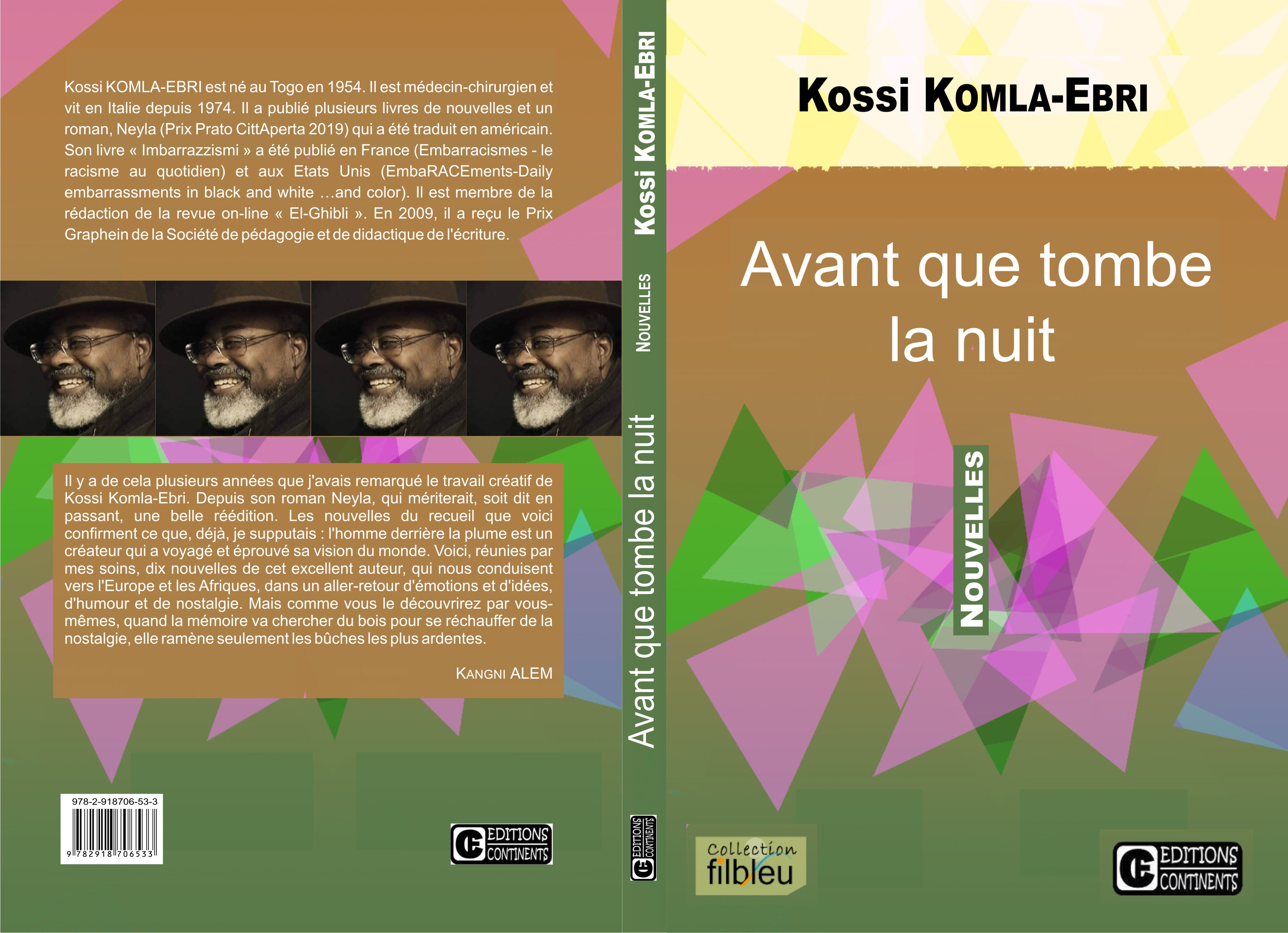
Avant que tombe la nuit (Before the night falls)
Avant que tombe la nuit (Before the night falls)
Several years ago I noticed Kossi Komla-Ebri's creative work. Ever since his novel Neyla, which, by the way, deserves a nice reprint.
The short stories in this collection confirm what I had already assumed: the man behind the pen is a creator who has travelled and experienced his vision of the world.
Here are, gathered together by me, ten short stories by this excellent author, which take us to Europe and the Africas, in a round trip of emotions and ideas, humour and nostalgia.
But as you will discover for yourselves, when memory goes to fetch wood to warm itself from nostalgia, it brings back only the most ardent logs.
Kangni ALEM
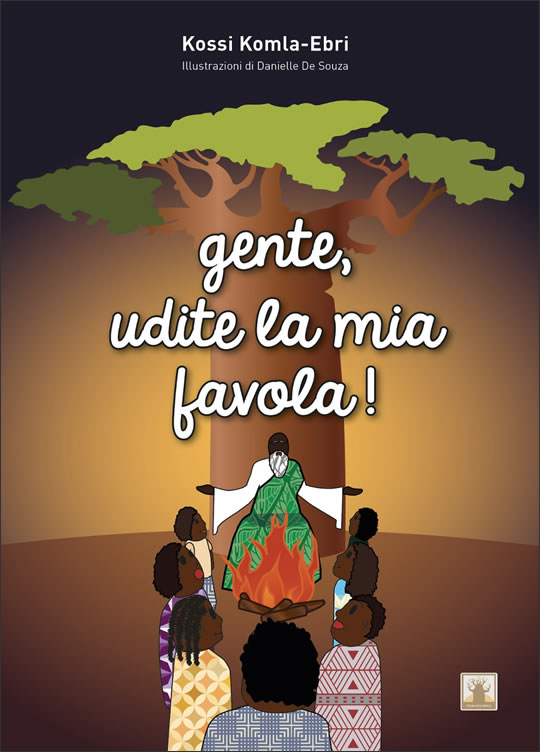
Gente udite la mia favola
("Folks, folks, listen to my fairy tale!)
Vedano al Lambro, Touba Culturale Italy 2020
Illustrations by Danielle De Souza
"A story or a proverb is yesterday's message transmitted to tomorrow through today"
(Amadou Hampaté Bâ)
Fairy tales always start with an introductory formula ""Folks, folks, listen to my fairy tale!"
which draws the attention of the auditorium then the main characters are listed.
They say that fairy tales are truths with lies (staging animal-heroes) that are told in the dark,
at night to deceive, because no one has been a true witness of the facts told.
So you always have to end with the formula:
"Hey people! That's how they tricked me and I came to deceive you too! "
Which is also an invitation to preserve the story preciously with the hope of being able to "deceive" other people one day.
“Il destino di Avoloto il tessitore” di Ankou Komla-Ebri
(The fate of Avoloto the weaver)
Vedano al Lambro, Touba Culturale Italy 2019
Traduzione di Kossi A.Komla-Ebri
“Everyone is born with his own destiny, but this destiny is not fatal, fossilized, rigid.We can influence it, change it: in a word only we ourselves are the protagonists, the architects of our destiny. Nobody can change our fate for us."
"Vita e sogni"-racconti in concerto
Vedano al Lambro, Edizione Touba Culturale Italy 2019
This new anthology by Kossi Komla-Ebri collects different texts among them by theme, protagonists and narrative modalities. However, they are united by a thread of dream, suspended between fantasy and reality ... masterfully dosed by the author in variable percentage page after page. Dreamlike and raw, mental and real, floating and anchored to life, in a concert of voices, whispers and shouts, Kossi's stories leave the reader with the pleasure of discovering when to be lulled by words towards their dream world and when instead it is the time to wake up and ask questions.
“La sposa degli dèi” (racconto lungo)
Vedano al Lambro, Touba Culturale Italy 2019
The use of the positive word, not the bearer of lies, of internal contradictions, is a vehicle of psychophysical balance. When the relationship between word and truth breaks, the body, but also the mind, is affected. The body becomes ill, the mind becomes blurred.
When the word moves away from the truth of the facts, the lie, even the omission of the truth itself, involves a bodily dysfunction, which can lead to extreme consequences, even to death.
“All’incrocio dei sentieri” Racconti dell’incontro
Vedano al Lambro, Edizione Touba Culturale Italy 2018
The Other, especially black, with its ways, sounds, colors, rituals questions us at a level of radical depth, gives us back the terrible sensation of our contingency, refers us to the possible accidental nature of what we are, of what to which we care, reminds us in the middle of our life, even when the end is far away, our unsurpassed finiteness of species, collective, individual. Much of our intellectual ability is destined to stifle this feeling, to cancel the risk that comes to us from the perception that other points of view on the world are possible. Without the Other, without the encounter (confrontation) with the "others", this complex awakening, mobilization and development of the human components (psychic, rational, relational) would not occur (as sometimes unfortunately happens), or would occur to a very limited extent . In summary: the other way to discover the self and, above all, to build the self. In fact, only the existence of otherness makes us discover the property deemed most personal and private: our own identity.
“Neyla” (novel)
Vedano al Lambro, Edizione Touba Culturale Italy 2018
The theme of this novel is not so much love, as what this feeling wants to mask, or the problems experienced by all those who have had to deal with setting foot on their land. Kossi Komla-Ebri, the most Lombard of the new African authors, makes us reflect and move. It speaks to us of departures and returns, of assimilation and cultural identity, but it does so by renouncing the literary archetypes of immigration, any nostalgic autobiographism, to instead leave free space to the creativity contained in the personal baggage of all migrants.
EmbarRACEments-Daily embarrassments in black and white …and color
EmbarRACEments New York, Bordighera Press 2019
Translated in english by Prof. Marie Orton and introduced by Prof. Graziella Parati. Endorsment Prof.John A. Powell
There is a noisy racism, that of insults, of hits, the one that kills. But there is also a silent racism, banal, sometimes unconscious, involuntary or that is meant to be funny but that can equally humiliate and discriminate.
Kossi Komla-Ebri exposes with bitter irony exasperating and disturbing episodes of everyday racism.
EmbarRACEments -Daily embarrassments in black and white ...and color
The theme is the embarrassment of the difference. The diversity - in particular that of the colour of the skin - which, in society, often leads migrants and natives to confront each other daily, in situations on the borderline between embarrassment and racism precisely those of the "EmbarRACEments".
In a world situation in crisis of sovereignty and nationalism, a series of questions remain unanswered and Kossi's book, besides making people smile, triggers a reflection on the concepts of belonging, integration, migration, identity.
“Embarracismes- le racisme au quotidien”
(Embarracements - racism in everyday life)
Lille, Editions Laborintus 2016
"This happy neologism, invented by Kossi Komla-Ebri, depicts situations that do not fit in cases of cruel, violent or at least intentional discrimination, but are episodes of racism of small caliber that occur without their perpetrator really realize it. Embarrassment, like an indecent blunder, creates discomfort. Like a Freudian slip, it reveals repressed judgments and prejudices. If each of these episodes is not serious in itself, embarracements hurt their victims, because they are everyday and because they illustrate a widespread mentality populated by stereotypes."
Cécile Kyenge, Former Italian Minister for Integration, Member of the European Parliament
“Imbarazzismi"
Vedano Al Lambro – Edizione Touba Culturale Italy 2018
Funny, bitter and dazzling anecdotes ... A gentle but effective weapon against racism.
This edition contains the two volumes:
*"Imbarazzismi- Quotidiani imbarazzi in bianco e nero”
*“Nuovi Imbarazzismi- Quotidiani imbarazzi in bianco e nero…e a colori”
“Nuovi imbarazzismi- Quotidiani imbarazzi in bianco e nero…e a colori"
(New embarracements - Daily embarrassments in black and white ... and in color)
Milano, Edizioni dell’Arco-Marna 2004
«I always thought that thinking about how language complicates, distorts and weighs on relationships, constitutes a very important aspect of our society, which we want to be multi-ethnic and multicultural and perhaps multilingual: here is the use of Italian which, who knows why, is done approximate and multicultural when we turn to those who do not recognize themselves as one of "ours" (with dark skin that is). Let's read them carefully, these writings, let's try to learn things that are really important for this country and for how it will live (we will live, us and them), in the coming years. And one last comment: let's appreciate the sense of humor, the "lightness"; we, in general, when it comes to these things, a sense of humor and lightness, show little of it. "
Laura Balbo, from the preface of the book Imbarazzismi, 2002
"Imbarazzismi –Quotidiani imbarazzi in bianco e nero"
(Embarracements - Daily embarrassments in black and white)
With an introduction by Laura Balbo- Milano, Edizioni dell'Arco-Marna 2002
From the train to the supermarket, from the hospital to the city streets, situations of daily embarrassment painted with brush strokes with a light touch. More humor than racism: an embarrassment often linked to a too conventional way of thinking and seeing others, rather than a real discomfort towards the "different". It is a booklet that can be read in about twenty minutes: a re-proposal of anecdotes already appeared in the anthology "La lingua strappata" with the addition of new episodes. The theme is that of "spoiled for difference". Diversity - in particular that of the color of the skin - which in a society not accustomed to it often leads migrants and natives to face each other in everyday life, in situations on the border between embarrassment and racism. Precisely "embarracements". I chose to tell them with a certain disenchanted irony, to make people smile more than laugh by helping a meditation on our natives / migrants relationships full of unconscious attitudes revealing the thick bark of misunderstandings and preconceptions that surrounds them.
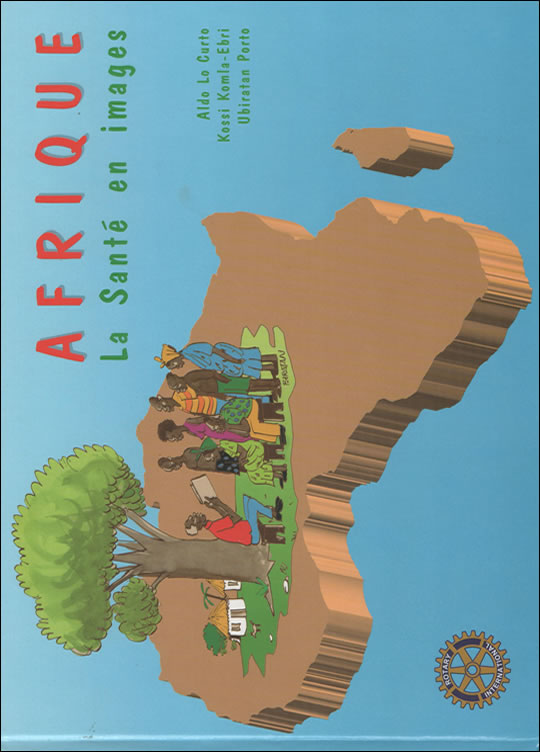
“Afrique. La santé en images”
(Africa Illustred Health Book)
Together with the itinerant doctor Aldo Lo Curto and the Brazilian designer Ubiratan Porto, he is the author of "Afrique. La santé en images ”, Rotary Club Lugano Lago and Rotary Foundation 1998
Manual (also available in English: "Africa Illustred Health Book") published with the contribution of the Rotary Club of Lugano Lago and the Rotary Foundation, is distributed free of charge in various African villages for the dissemination of health education among local populations. For this work he receives the appointment to Paul Harris Fellow.


